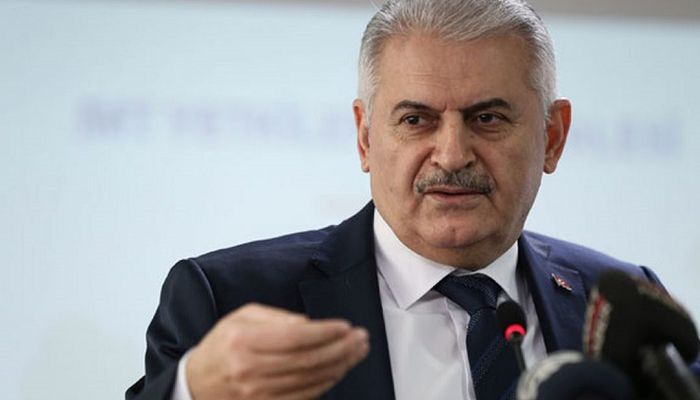Turkish Prime Minister Binali Yıldırım has said that the door for a switch to a presidential system of governance in Turkey was opened on July 15, when a bloody coup attempt took place.
“Indeed, the door to a presidential system was opened on the night of July 15. It was on the agenda before then, but its importance was not known. There was speculation suggesting that President Recep Tayyip Erdoğan wanted the presidential system for himself, etc. But we saw that was not the case on the night of July 15,” Yıldırım told a group of journalists during a live TV show on Saturday night.
Nationalist Movement Party (MHP) leader Devlet Bahçeli sparked a fresh debate over the introduction of an executive presidency in Turkey recently when he said there was a de facto situation in Turkey concerning its style of governance and that President Erdoğan was acting like an executive president although his post is largely ceremonial. Bahçeli said the situation needs to be resolved.
Following Bahçeli’s remarks, government officials have said they are planning to bring constitutional amendments related to an executive presidency to Parliament in January and to hold a referendum on them in April.
The post of the president is largely ceremonial in Turkey; however, President Erdoğan has been acting as an executive president since his election to the top state post in August 2014. Erdoğan is a strong supporter of a switch to the presidential system. Yet, critics say Erdoğan wants a “Turkish style” executive presidency without checks and balances, one that is aimed at creating one-man rule.
Turkey survived a military coup attempt on July 15 that killed over 240 people and wounded more than a thousand others. Immediately after the putsch, the government along with President Recep Tayyip Erdoğan pinned the blame on the Gülen movement.
Despite Turkish Islamic scholar Fethullah Gülen and the movement having denied the accusation, Erdoğan — calling the coup attempt “a gift from God” — and the government launched a widespread purge aimed at cleansing sympathizers of the movement from within state institutions, dehumanizing its popular figures and putting them in custody.
More than 110,000 people have been purged from state bodies, 82,000 detained and 35,000 arrested since the coup attempt. Arrestees include journalists, judges, prosecutors, police and military officers, academics, governors, housewives and even a comedian.
Critics argue that lists of Gülen sympathizers were drawn up prior to the coup attempt.


